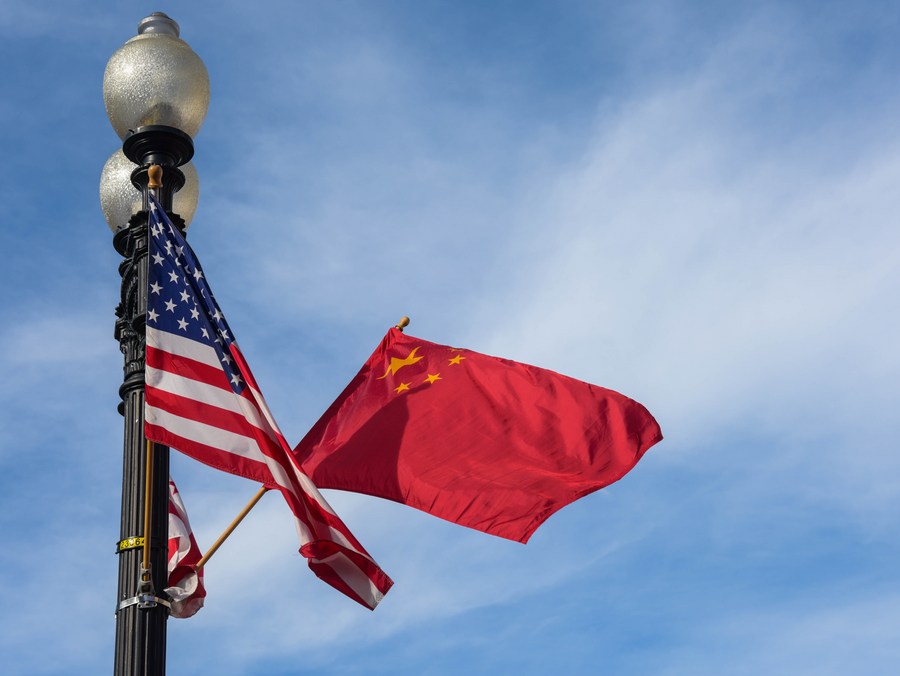
Photo taken on Sept. 24, 2015 shows the national flags of China (R) and the United States as well as the flag of Washington D.C. on the Constitution Avenue in Washington, capital of the United States. (Xinhua/Bao Dandan)
"I hope that this meeting, in retrospect, proves to be the first step on the journey towards a new balanced, constructive U.S.-China relationship, because it is certainly the case that our bilateral relations are in tatters, in bad shape," said Daniel Russel, vice president for International Security and Diplomacy at the Asia Society Policy Institute.
WASHINGTON, March 18 (Xinhua) -- The upcoming meeting between top Chinese and U.S. diplomats in Anchorage, Alaska is "a starting point" for the two countries to reset their bilateral ties which are "in tatters," a former senior U.S. official has said.
"I hope that this meeting, in retrospect, proves to be the first step on the journey towards a new balanced, constructive U.S.-China relationship, because it is certainly the case that our bilateral relations are in tatters, in bad shape," Daniel Russel, vice president for International Security and Diplomacy at the Asia Society Policy Institute, told Xinhua in a recent interview.
Yang Jiechi, a member of the Political Bureau of the Communist Party of China (CPC) Central Committee and director of the Office of the Foreign Affairs Commission of the CPC Central Committee, and Chinese State Councilor and Foreign Minister Wang Yi will meet with U.S. Secretary of State Antony Blinken and U.S. National Security Advisor Jake Sullivan on Thursday and Friday in Anchorage, Alaska.
The meeting is "an important opportunity to begin a strategic discussion of the respective worldviews of each leader, the priorities of the two governments," and "an opportunity for each to explain their thinking and also to listen to each other, to ask questions of each other," said Russel, assistant secretary of state for East Asian and Pacific affairs under former U.S. President Barack Obama's administration.
There have always been elements of cooperation and competition, and even confrontation in the U.S.-China relationship to various degrees, said Russel, adding "I don't think that the confrontation part or even the competition has ever reached the levels that it seems to be at now, nor has cooperation been so difficult as it is now."
"It's certainly the case that the U.S. and China both seek and would benefit from many of the same outcomes ... There's a long list of outcomes that are beneficial to both sides, and that is reflected in the policies of both governments, but that doesn't guarantee cooperation," he said, citing global issues like climate change and prevention of nuclear proliferation.
"History proves that nations don't always act in their own best interest. There are many factors, economic factors, political factors at work that can distort policymaking," he said, adding "it was wise of the two sides to begin our bilateral engagement ... with an open but private discussion, to explore the thinking of each side."
However, the expert pointed out that it is "rather unlikely that the two sides will attempt, let alone succeed in resolving the many outstanding problems. That's not where we should peg our expectations for this meeting. It won't be a failure if they don't reach agreements ... I think it's a starting point."
In terms of the venue of the meeting, Russel said, in his experience, meeting with foreign officials outside of the capital has some advantages.
It allows the visitor to "focus exclusively on the meeting itself" and the host "more time and less distraction," he said. ■




